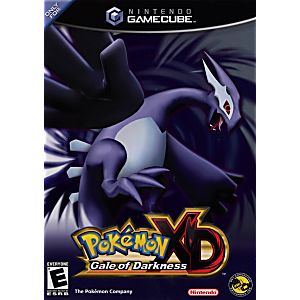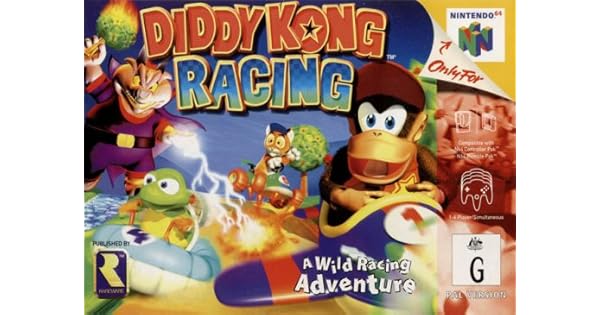NinTEN Part 1
Apr. 10th, 2019 03:19 pmThere's not much explanation needed behind this new venture; it's your standard Top 10 list, with my favourite games chosen from the following consoles and handhelds: NES, SNES, N64, GC, GB, GBA, DS, 3DS, Wii, Wii U, PS4 and Switch. Two other disclaimers, as well: first, there are games that I own but haven't played enough of in order to be able to gush about them, so don't expect to see those here without further research; and second, while technical excellence and a game's objective brilliance has been factored in here, this is a list of my favourite games and not the best games of all time. I've done my utmost to rank them in order, too, as opposed to that "no particular order" business favoured by reality TV. And, most importantly, while I have chosen my top picks here, I'm a huge fan of every game I own - this isn't an easy list to make.
If you'd like me to post your list here, or to tell me about your favourite game, send your list/nomination to nintendocuments@gmail.com. I know that doesn't seem that enticing, given the small number of people who read this journal, but hey, maybe one day I'll make it big and you can lay claim to being one of my first 'followers'! Back before it became cool. Becomes cool. You know.
10. Tomb Raider Trilogy - PS4

A few years ago, back in 2015, I went through what I would describe as a "tough time": I'm always a bit anxious, but I became extra antsy at that point, having given up my job and becoming overwhelmed by the change in routine. If I'm given too much time to think, or, similarly, if I'm under too much stress, I start worrying - creating, even - health issues: it happened with my stomach in 2011, and my eyes in 2006. I went to a therapist for a few sessions and became more conscious of my difficulty in adapting to new routines and situations, and I think I can handle things better now, even if I'm still anxious and a slight hypochondriac. ANYWAY. All of which is to say that Tomb Raider was the game I played at the time to calm my nerves; ironically, it took shooting fanatics in the head with a bow to achieve some peace. It's an excellent, excellent game, with super fun mechanics, terrific visuals, and an empowered, realistic Lara Croft to play as. I recommend each entry in the trilogy, actually, and they're easy to find these days.
9. Pokémon Colosseum and Pokémon XD - GC

I'm grouping these two games together because the latter is essentially Colosseum 2, and, well, it's my list, so I'm quite entitled to nail my colours to any mast/s. These two games are potentially the most underrated Pokémon games, and sadly earn little more than an honourable mention whenever commentators review the Gamecube's output. That's in spite of the fact that they have unforgettable music, unique storylines, memorable locations, and a distinctive, futuristic style. Unlike the clean, innocent meadows of Hoenn, Kanto, and Johto, Orre is - as its name suggests - metallic, modern, and gritty. Instead of the colourful laneways and dojos that you use as battlegrounds in the GB/DS games, your (mature) protagonist starts Pokémon battles in the street, abandoned warehouses, and construction sites. This grittiness is dialled back somewhat in XD but the sequel boasts the same excellent graphics, music, and lengthy campaign. I love these games, and the sequel is extremely rare - keep an eye out for it.
8. Diddy Kong Racing - N64

Hard to imagine that Rare's Mario Kart-beater was kept so deeply under wraps back in 1997 that gaming magazines and websites didn't even know it was coming. It was announced, some footage was released, and it launched in about a month or two. Imagine a game doing the same today - I doubt developers would risk their new title disappearing under the radar. But Rare were amazing, back in the day, and aside from GoldenEye and Banjo-Kazooie, I think Diddy Kong Racing marks the very pinnacle of their achievements. It was teeth-gnashingly difficult the first time, especially in Adventure 2/Reverse Mode, and while I'm now able to beat it rather readily, it remains a mystery to my past self: there was a time I didn't know if I ever would, so soundly was I trounced by its bosses and Silver Coin Challenge. Unlike Mario Kart, there's a lot to do here if you're playing on your lonesome, and some fantastic music and colour to awe the senses. If you manage to pick up a second-hand N64, it's a game I'd recommend having.
If you'd like me to post your list here, or to tell me about your favourite game, send your list/nomination to nintendocuments@gmail.com. I know that doesn't seem that enticing, given the small number of people who read this journal, but hey, maybe one day I'll make it big and you can lay claim to being one of my first 'followers'! Back before it became cool. Becomes cool. You know.
10. Tomb Raider Trilogy - PS4

A few years ago, back in 2015, I went through what I would describe as a "tough time": I'm always a bit anxious, but I became extra antsy at that point, having given up my job and becoming overwhelmed by the change in routine. If I'm given too much time to think, or, similarly, if I'm under too much stress, I start worrying - creating, even - health issues: it happened with my stomach in 2011, and my eyes in 2006. I went to a therapist for a few sessions and became more conscious of my difficulty in adapting to new routines and situations, and I think I can handle things better now, even if I'm still anxious and a slight hypochondriac. ANYWAY. All of which is to say that Tomb Raider was the game I played at the time to calm my nerves; ironically, it took shooting fanatics in the head with a bow to achieve some peace. It's an excellent, excellent game, with super fun mechanics, terrific visuals, and an empowered, realistic Lara Croft to play as. I recommend each entry in the trilogy, actually, and they're easy to find these days.
9. Pokémon Colosseum and Pokémon XD - GC

I'm grouping these two games together because the latter is essentially Colosseum 2, and, well, it's my list, so I'm quite entitled to nail my colours to any mast/s. These two games are potentially the most underrated Pokémon games, and sadly earn little more than an honourable mention whenever commentators review the Gamecube's output. That's in spite of the fact that they have unforgettable music, unique storylines, memorable locations, and a distinctive, futuristic style. Unlike the clean, innocent meadows of Hoenn, Kanto, and Johto, Orre is - as its name suggests - metallic, modern, and gritty. Instead of the colourful laneways and dojos that you use as battlegrounds in the GB/DS games, your (mature) protagonist starts Pokémon battles in the street, abandoned warehouses, and construction sites. This grittiness is dialled back somewhat in XD but the sequel boasts the same excellent graphics, music, and lengthy campaign. I love these games, and the sequel is extremely rare - keep an eye out for it.
8. Diddy Kong Racing - N64

Hard to imagine that Rare's Mario Kart-beater was kept so deeply under wraps back in 1997 that gaming magazines and websites didn't even know it was coming. It was announced, some footage was released, and it launched in about a month or two. Imagine a game doing the same today - I doubt developers would risk their new title disappearing under the radar. But Rare were amazing, back in the day, and aside from GoldenEye and Banjo-Kazooie, I think Diddy Kong Racing marks the very pinnacle of their achievements. It was teeth-gnashingly difficult the first time, especially in Adventure 2/Reverse Mode, and while I'm now able to beat it rather readily, it remains a mystery to my past self: there was a time I didn't know if I ever would, so soundly was I trounced by its bosses and Silver Coin Challenge. Unlike Mario Kart, there's a lot to do here if you're playing on your lonesome, and some fantastic music and colour to awe the senses. If you manage to pick up a second-hand N64, it's a game I'd recommend having.
